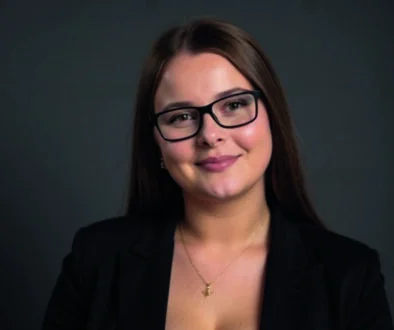European Investment Fund backs two private credit funds
The European Investment Fund (EIF) has invested in two private credit funds to support small- and medium-sized businesses across the continent.
The state development bank has signed a €25m (£21.4m) commitment as a cornerstone investor in a senior private debt fund managed by Sound Asset Management, a newly established Lithuanian alternative asset manager.
The fund – Sound Senior Private Debt Fund 1 – will fund small businesses and small mid-caps in the Baltics, and aims to raise €80m by the end of the year.
Read more: EIF backs new HeavyFinance credit fund
It will be classified as an Article 8 fund under the Sustainable Finance Disclosure Regulation (SFDR), with 15 per cent of its investments dedicated to climate action and environmental sustainability criteria.
“The Sound Senior Private Debt Fund is the first institutional private credit fund targeting small businesses in the Baltics,” said EIF chief executive Marjut Falkstedt.
“This initiative is fully aligned with our goal of providing alternative sources of financing for small businesses across Europe, overcoming the reliance on traditional bank lending. It will help Baltic small businesses access tailor-made financing that meets their specific financing needs and supports their growth and development plans.”
Andrius Sokolovskis, chief executive of Sound Asset Management, said: “The fund will provide much needed financing solutions for underserved and growing small businesses as well as small mid-caps in the Baltics. This will be the first senior private debt fund backed by institutional investors in the Baltics. We are grateful for the EIF’s trust in our team and overall support for the development of the private debt class in the region where alternative financing is very much needed.”
Vicenda Group’s Debt Opportunities Fund
Separately, the EIF has committed €30m to Vicenda Group’s Debt Opportunities Fund.
Swiss-based private credit specialist Vicenda said it has raised €100m – including the EIF investment – and is now in “intensive discussions” with German institutional investors in order to reach its €250m target fund size.
Read more: EIF partners with Finbee to channel €19m to Lithuanian micro-businesses
The fund invests in senior secured loans to small- and medium-sized businesses primarily located in the DACH region, with target returns after fees of 11 per cent per annum.
It is an Article 8 fund. And with the commitment of the EIF, the fund also includes a minimum target of loans aligned with the EIF Climate Action and Environmental Sustainability Criteria (CA&ES).
Loans made by the fund range from €5m to €25m and have terms of up to four years.
The fund’s management expects to finance up to 40 loans during the planned six-year term.
“Despite challenging market conditions, the Vicenda Debt Opportunities Fund has successfully secured substantial capital commitments since its inception,” said Philipp Schneider, executive board member and sales director of Vicenda Group.
Read more: Private debt diversifies from direct lending
“The financial commitments of Vicenda’s shareholders and operational partners demonstrate a strong alignment of interest and reaffirm our joint commitment to the fund’s goals. The fund focuses particularly on smaller and medium-sized enterprises, which are often inadequately served by traditional debt providers, including banks, partly due to regulatory restrictions. Our confidence in SMEs is based on their crucial role as the backbone of our economy. SMEs constitute the majority of the economic structure in Europe and have repeatedly proven their robustness and adaptability by successfully overcoming various challenges.”
The EIF’s Falkstedt said: “With the backing of the InvestEU programme, the EIF is happy to be in position to support Vicenda’s Debt Opportunities Fund, offering flexible and tailor-made alternative financing solutions for small and medium-sized businesses in the DACH region, while also including environmental and social considerations alongside SME competitiveness within the investment process.”





